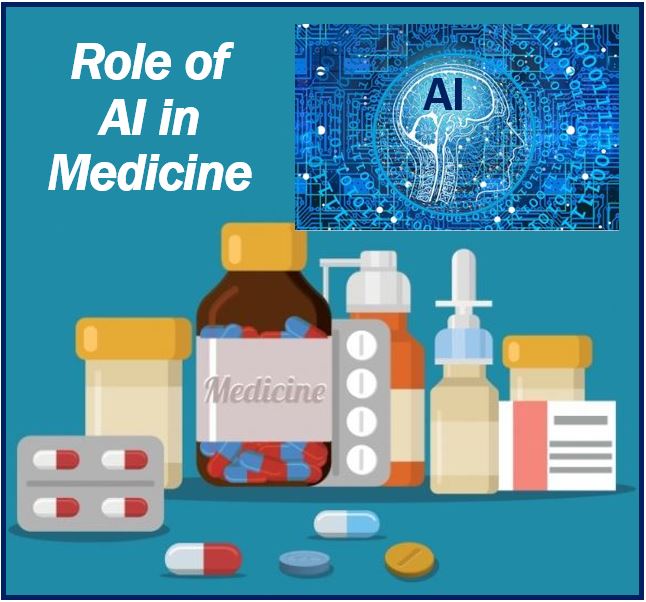
Today, there are various brands like Novartis, Bayer, Cyclica, and Verge Genomics that are embracing the technology to deliver a better pharma-powered experience to the patients. There are several firms and organizations that are exploring the possibilities and looking forward to introducing AI as a service into their business by hiring the best app development companies.
In the midst of this, if you are someone in the medicine industry who is still wondering what AI means to your business, this article will be a good read for you.
Here, we will take a brief look into the different applications of Artificial Intelligence in the medicine sector.
So, here we begin with.
Different Use Cases of Artificial Intelligence in Medicine Industry
1. Disease Identification at Earlier Stage
AI-enabled apps and solutions scan the patient’s body and check their earlier medical history as well as facts based on their genetics quickly and effectively. They also keep an eye on the other research papers to easily determine what symptoms have been recorded among the patients across the globe. And in this way, these AI-enabled applications facilitate the medical practitioners and pharmacists with opportunities to easily and quickly detect the disease and find ways to deal with them.
2. Faster Drug Development
Artificial Intelligence is bringing a major impact is Drug development. The technology, with its analytical algorithms, has eased and accelerated the gathering and analyzing the heap of data, which has eventually saved millions of money and years of research work. It has empowered medical researchers and pharmacists to easily and effectively use the reports to look forward into developing a drug.
3. Enhanced Gene Editing
This is again encouraging medical organizations to turn towards the top app development companies and get an AI-enabled mobile application added to their existing process.
4. Antibiotic Resistance
Artificial Intelligence is also gaining momentum in the market because of its antibiotic resistance capabilities. The technology, with its deep reinforcement model, learns about the bacteria causing antibiotic resistance and provides the medical organizations with different ways to combat this situation.
In other words, the technology helps them to figure out the real cause behind the antibiotic resistance and thus, assists them in finding the best optimal solution to mitigate this challenge and deliver an exceptional experience to their patients.
5. Real-Time Consultations
AI in pharmaceutical industry also helps to maintain a streamlined relationship between the patient and pharmacist. The AI-enabled chatbot caters to the needs of patients 24×7 and assist them with all the general queries, while it transfers only the high-level queries to pharmacists and other medical operators. Besides, it manages to consult more than one patient at a single point of time without losing the crux of the conversation.
This, on one side, cut down the efforts of medical organizations, while on the other side, assist the patients with the best of the information and services.
6. Data Management
Another reason why pharmacist are showing interest in how to integrate Artificial Intelligence into their existing apps is that it simplifies and accelerates the process of managing data. The AI-enabled software and applications collect, analyze, and store all the data on cloud efficiently, securely, and effectively and keep a watch on all the activities. And the best part is that the data is accessible on any device anytime and from anywhere.
This, as a whole, cut down the hassle associated with maintaining and storing physical records and getting an access to these information when not in the physical store.
7. Alerts and Reminders
Above all, the technology acts as a virtual nurse who take care of patients day and night. They send a push notification or alert to the patients about the medicine consumption, medicine getting out of stock, expired medicine, and more. They also send a message to doctors and physicians in real-time in case of emergency and aid patients with better assistance.
Wrapping Up
Artificial Intelligence is undeniably the next big thing in the medicine sector. The technology enjoyed a market of around $719 Million in 2017 and is expected to cross $18,119 Million between 2018 and 2025, accompanying the advent of new opportunities and concepts. It is also predicted by the experts to become a necessary element of every pharma medicine business.
So, knowing what the future holds, do not sit back and wait for the technology to become the core element of the industry. Prepare for the future today itself by hiring the best app development companies and getting AI integrated into your pharmaceutical business.
